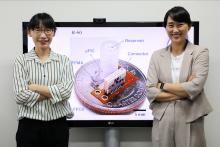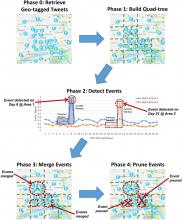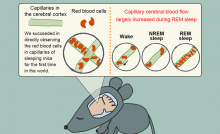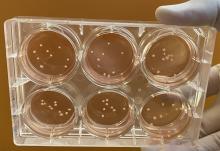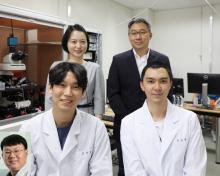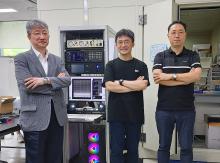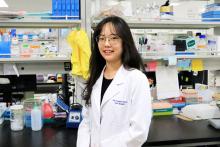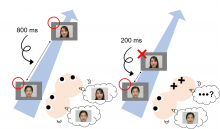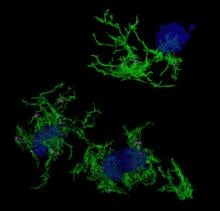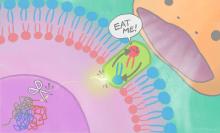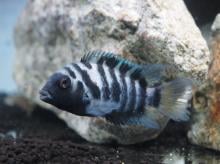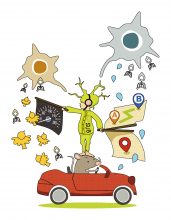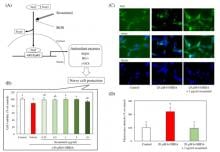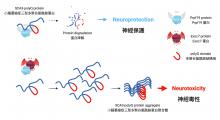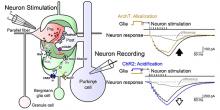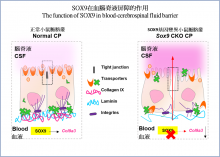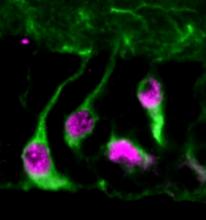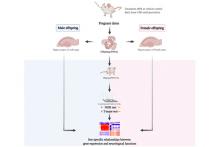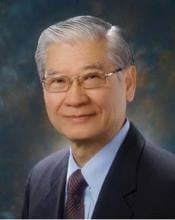Brain
News
13 Oct 2021
Miniature brains mimic critical features of Parkinson's disease, better weather forecasting with satellite data, light does the twist for quantum computing, new insights into embryonic development & elevating women leaders in Myanmar in the October Editor's Choice. Plus don't forget submissions for Asia Research News 2022!
01 Oct 2021
Novel design of brain chip implant allows for measuring neuronal activity while simultaneously delivering drugs to the implant site
01 Oct 2021
Paris, 29 September — UNESCO and the L'Oréal Foundation are unveiling the winners of this year’s International Prize for Women in Science, which honours five eminent women scientists with exceptional careers from the five regions of the world, as it has done annually since 1998.
24 Sep 2021
An algorithm that detects events occurring across different time and geographical scales on social media could enable a more timely response to emerging events.
15 Sep 2021
New research published in Stem Cell Reports has found elevated cholesterol supply from astrocytes to neurons in the model of Alzheimer's disease (AD) brains, suggesting that modulating brain cholesterol could be explored in the search of treatment options for the devastating, degenerative disease.
09 Sep 2021
Researchers from the University of Tsukuba and Kyoto University find that capillary blood flow in the brain, which is important for delivering oxygen and nutrients and removing waste products, is increased in mice during the dream-active phase of sleep.
07 Sep 2021
Recreating major pathological features of Parkinson’s disease in a lab-grown, human mini-brain will help researchers to explore new treatments. This is the first time that Lewy bodies, a hallmark of Parkinson’s disease in patients’ brains, have been produced in the laboratory, offering new insights into the disease.
06 Sep 2021
Neuroscientists develop a new approach to better understand the neural mechanism underlying deductive and inductive reasoning
12 Aug 2021
Experiments conducted on genetically modified mice clarify the role of a protein in regulating properties of specific hippocampal neural circuits
10 Aug 2021
A new, energy-efficient method of electrical brain stimulation developed by researchers from the Daegu Gyeongbuk Institute of Science and Technology could aid stroke rehabilitation and has few side effects.
12 Jul 2021
- Gowoon Son, DGIST, to earn a Doctorate from Maastricht University
08 Jul 2021
Our brain has no lymphatic system; however, it does have fluid flow, which is believed to play a role in removing waste from the brain. However, the fluid's point of origin and fluid flow is still unclear. The “multi-scale stable isotopes imaging” project in Hokkaido University aims to solve this mystery using advanced technology.
“We would not have been able to perform this study without Hokkaido University’s MRI technology and the isotope microscope,” said the project’s PI, Professor Kohsuke Kudo of the Department of Radiology, Faculty of Medicine.

08 Jul 2021
ARN's July newsletter features research about a promising treatment candidate to reverse dementia, a newly discovered climate pattern, using starch in tiny energy devices, exploring earth Earth ecosystems and the photo of the month.
17 Jun 2021
Cryo-electron microscopy and computer simulations uncover how a cellular protein helps transport omega-3 fatty acids to the brain and eye, with implications for drug development.
21 May 2021
Chuo University and Hokkaido University researchers have found that infants take less than a second to completely process visual information and have the same temporal limitation in processing visual information as seen in adults.
21 May 2021
Single-cell gene studies are clarifying the roles of the brain’s specialised immune cell in Alzheimer’s disease and offer new avenues for treatment of this incurable condition.

09 Apr 2021
ARN's April Newsletter features research on COVID-19 antibodies, cancer-fighting hydrogels, how the brain organizes information, the 'poor man's q-bit' and the photo of the month!
26 Mar 2021
An ‘eat-me’ signal displayed on cell surfaces requires activation of a lipid-scrambling protein by a nuclear protein fragment.
19 Mar 2021
Through a series of prosocial choice tasks, researchers reveal prosocial and antisocial characteristics in male convict cichlid fish. The fish distinguish between female breeding partners, unknown females, and rival males by adjusting their actions to either provide food for both them and the females or avoid providing food for the rival males.
10 Mar 2021
Researchers reveal the path of information received by the hippocampus. Using optogenetics during large-scale recordings of rat subiculum, they discovered that the subiculum distributes information from the hippocampus to 4 downstream regions of the brain. They observed that the theta and sharp-wave/ripples in the subiculum controlled information transmission with millisecond precision according to the target region. This provides the foundation for a comprehensive understanding of the hippocampal memory system.
03 Mar 2021
Osaka City University finds that the chemical sesaminol, naturally occurring in sesame seeds, protects against Parkinson’s disease by preventing neuronal damage that decreases the production of dopamine. In vitro experiments show sesaminol handle oxidative stress in cells by regulating the production of reactive oxygen species and the movement of antioxidants. In vivo experiments reveal that a diet of sesaminol increases production of dopamine and significantly improve motor functions in mice.
28 Feb 2021
Spinocerebellar ataxia type 3 (SCA3), also known as Machado-Joseph Disease (MJD), describes the most common form of dominantly inherited ataxia in many populations worldwide, including Hong Kong and mainland China. SCA3 or MJD patients often present problems with gait and balance, blurred vision, and speech difficulties. The symptoms are progressive, and patients may eventually decline into a bed-ridden state. To date, SCA3 or MJD remains an incurable disorder.
Collaborating with the University of Oxford, Professor Ho Yin Edwin Chan’s research team from the School of Life Sciences of The Chinese University of Hong Kong (CUHK) recently unveiled the counteracting relationship between pre-mRNA-processing factor 19 (Prpf19) and exocyst complex component 7 (Exoc7) in controlling the degradation of disease protein and neurodegeneration of the rare hereditary ataxia. The research findings have been published in the prestigious scientific journal, Cell Death & Disease.
25 Feb 2021
New study shows that uneven accumulation of amyloid β is linked to olfactory dysfunction or partial loss of smell, an early symptom of Alzheimer’s disease
24 Feb 2021
Scientists have revealed glial cells act as amplifiers for synaptic signals and artificial control of the glial state can potentially be used for enhanced memory function of the brain.
24 Feb 2021
A research team from the School of Life Sciences at The Chinese University of Hong Kong (CUHK) has recently discovered that SOX9 protein is an essential regulatory factor of choroid plexus function that ensures the correct composition of cerebrospinal fluid (CSF). The finding, recently published in the prestigious scientific journal Proceedings of the National Academy of Sciences of the United States of America (PNAS), has provided the scientific community a novel understanding to the molecular regulatory mechanisms behind the function of the blood-CSF barrier and lays the groundwork for developing novel therapeutic strategies for preventing and treating neurodevelopmental disorders.

11 Feb 2021
Research co-led by academics at City University of Hong Kong (CityU) has discovered that the phenomenon of human self-organisation known as synchronisation forms spontaneously to avoid inter-person collisions when the safety distance between pedestrians seems insufficient. The findings provided insights in preventing pedestrian synchronisation-induced wobbling effect in structures, ensuring pedestrian and transportation safety.
11 Feb 2021
A brain enzyme activates dormant neural stem cells, revealing how defects in its gene could lead to neurodevelopmental disorders.
03 Feb 2021
Researchers from the School of Chinese Medicine (SCM) at Hong Kong Baptist University (HKBU) have developed a Chinese medicine formula named NeuroDefend that offers a potential novel treatment for Alzheimer’s disease (AD). Mouse model experiment results showed that the formula reduces the levels of amyloid-beta (Aβ) and insoluble hyperphosphorylated-tau protein, which are the major hallmarks of AD, in mice brains. It also improves cognitive function and memory in mice.
19 Jan 2021
Autism has a higher prevalence in males than females. Bisphenol A (BPA) is a common chemical found in plastics, our food, and even the human placenta. Higher prenatal exposure to BPA is thought to increase the risk of autism. Researchers have, for the first time, identified autism candidate genes that may be responsible for the sex-specific effects of BPA.
24 Dec 2020
Researchers at Tohoku University have developed the first all-in-one miniature pH probe for real-time investigations of intrinsic extracellular pH dynamics in the deep brain structures.
Events
Sorry, no events coming up for this topic.
Researchers
Sorry, no researchers coming up for this topic.
Giants in history
David T. Wong (born 1936) is a Hong Kong-born American neuroscientist who is best known for discovering the antidepressant drug fluoxetine, better known as Prozac.



